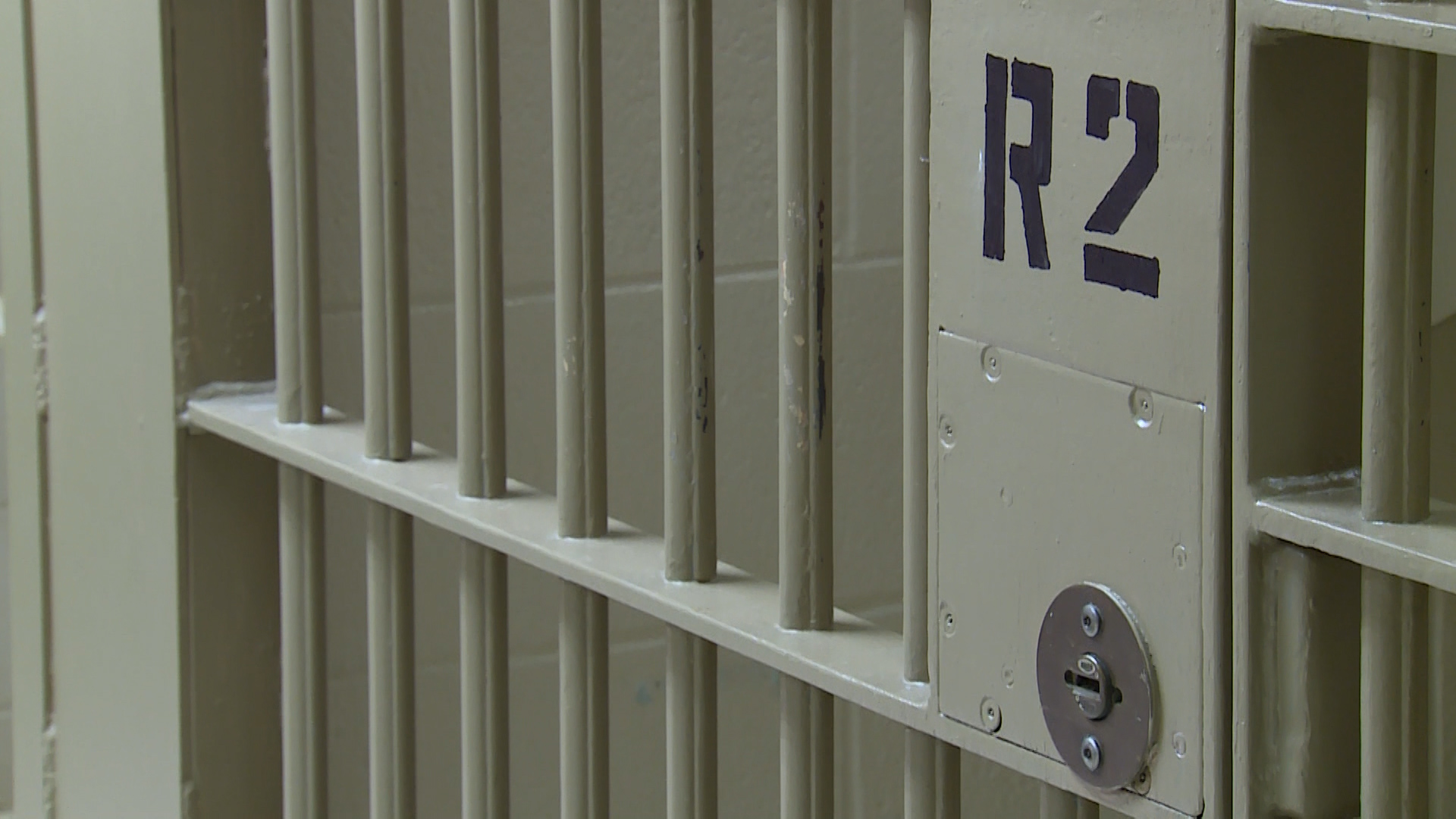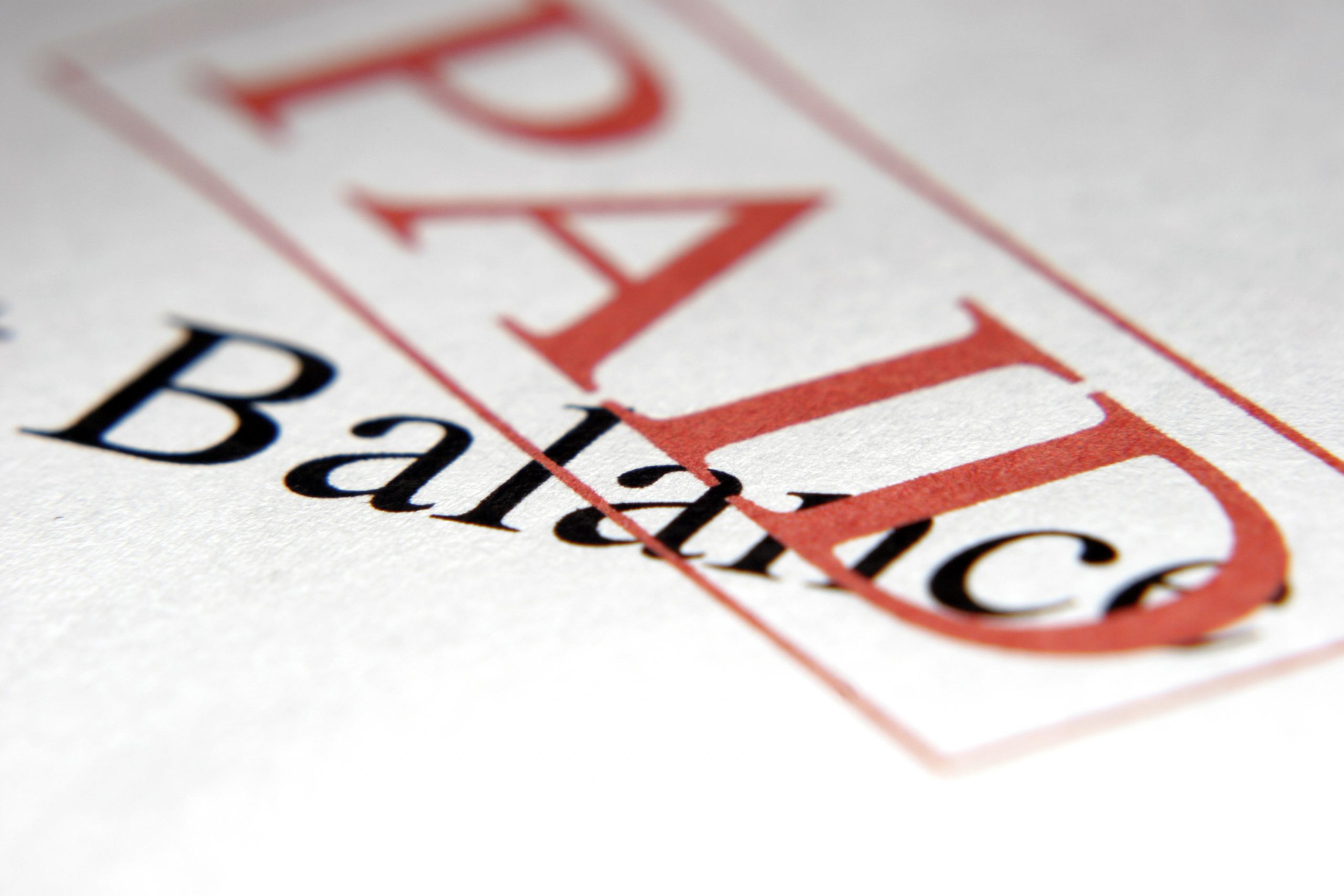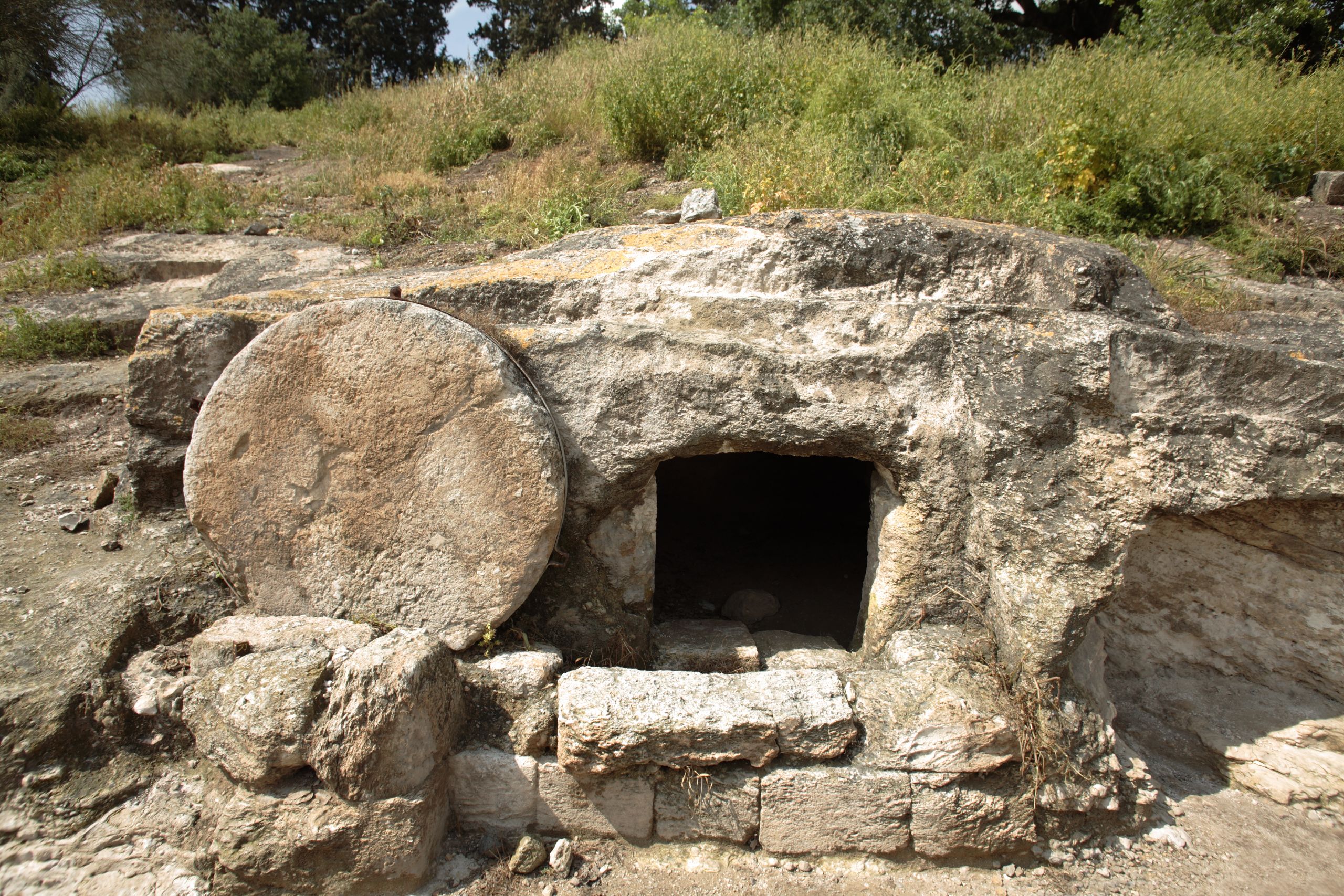Can you imagine a doctor trying to persuade a person to take medicine for a disease they don’t think they have?
Or can you imagine a lifeguard trying to save a person who doesn’t think they are drowning?
Many people in our world look at religion the same way. It’s trying to solve a problem they don’t think they have.
Or maybe they think that religion is all about making them feel more fulfilled and so they can pick and choose their beliefs based on what appeals to them. Is that how it really works though?
Does it matter what we believe and how we live?

It does, if there is such a thing as truth. Think about it this way: if I don’t think that gravity exists, does it no longer affect me? If I sincerely believe that gravity doesn’t exist, can I walk straight off a cliff?
Of course not. Even though I might be very sincere in my belief that gravity doesn’t exist, that doesn’t change the fact that gravity is true. Truth is not a preference, like my favourite flavour of ice-cream. Some things are true, regardless of whether I believe them or not.
It’s the same with religion!
Either God exists or he doesn’t.
Whether I believe in him or not, and my opinion of him, is irrelevant. Either there is an afterlife or there isn’t. My beliefs won’t change reality.
But if there is a God, that is very important, because like it or not, it will affect me.
Whatever religious or non-religious worldview you hold, I would like to share with you a few things that might help you grasp what I’m saying for yourself. By the time you reach the bottom of this page, you’ll know a little bit about what Christians believe and why it matters.
How do we know that God exists?
The Bible tells us that there is a God who made the world and everything that we can see around us. 1 The trees, the animals and all life on this planet are here because they were made by someone.
How do we know that they were made?
We know because complex things don’t come from chaos.
Complex things were designed.

For example, look at the computer or device you are on right now. Would you ever believe that it was built by nobody; that all the components came together by accident and just happened to be arranged as they are? Would you ever argue that the computer code was nothing but random 1’s and 0’s and that no one wrote the code? If I tried to argue that, you would probably think that I was a bit strange. You didn’t have to see anyone build the device because you know that computers and phones don’t happen by accident.
And yet, as complex as your device is, you are a lot more complex. You are made up of millions of cells, arranged as complex organs, which form many systems, that all exist together to create you!
In fact, your DNA code is so long, that if we were to type it out, size 11 font, double sided, it would take 405,000 pages forming a stack 26 meters high and weighing over 2000kg! It doesn’t make sense to argue that you are the result of an accident and that no one designed you. You’re simply too complex.
Your existence is evidence for God!
Some people look at the evidence of design and argue that it all happened by accident. Even though the probability is beyond impossible, they will cling to the idea that no one made us. However, you would never argue for an accidental computer, an accidental car or even an accidental pen. That’s just not consistent.
The Bible tells us that the existence of God is obvious when looking at the created world 2 but that so often, we reject the evidence, not because the arguments are compelling, but because we understand that a creator has rules. 3
How then can we know who this God is and what they want? Well we can only know if this God speaks to us and tells us. The Bible is how God has spoken to us. 4 He inspired people to write down exactly what he wanted them to write so that we can know who he is and how we are to live. The Bible tells us that God is holy, righteous, eternal, all-knowing, all-powerful, all-present and that God is good.
The Bible also says that God is one being, but three persons. These three persons are God the Father, God the Son & God the Holy Spirit. They are all one, and all equally God, but they are also distinct and exercise different roles in our world. 5
So that’s what we know about God, but what does the Bible tell us about the afterlife?

Most people know they’re not perfect. We recognise that we have done some bad things during our lives, but we comfort ourselves with the fact that compared to most people, we’re not as bad as others. If God were judging us compared to everyone else, we should be ok.
However, as creator, God has rules. As the one who made us and who made the world we live in, he has the right to say how we should live. Do you think you have kept his rules?
For instance, God says that we are not to lie.6 How many lies have you told in your whole life up to this point? Big lies, small lies, green, white, blue or pink lies, all lies are still lies. Can you even count the number?
God also says that we are not to steal. 7 Have you ever taken something from someone else, regardless of the size or value of the object? Whether it’s from a shop, from a friend or family member, or even off the internet, to take something without paying for it is theft.
 Most of us quickly respond that we have never murdered anyone and that we would never do such a thing. However, the Bible points out that God is also concerned with our thought life and says that hatred of someone else, or to respond in rage is to commit murder in our hearts. 8 Have you ever hated anyone or been really angry with them?
Most of us quickly respond that we have never murdered anyone and that we would never do such a thing. However, the Bible points out that God is also concerned with our thought life and says that hatred of someone else, or to respond in rage is to commit murder in our hearts. 8 Have you ever hated anyone or been really angry with them?
God also places rules on our relationships and calls us to sexual purity. He created intimacy and said that it was good, but called us to only express that intimacy inside of marriage. 9 The Bible again tells us that God is concerned with our thoughts and states that to look with lust upon someone who is not our spouse is to break God’s command. 10 Have you ever looked at someone and had those sorts of thoughts?
How about obeying your parents? Did you ever talk back or disobey them? God says that we are to honour our mother and father. 11
When you think about it, if God is making the rules that we are to follow, we have been living in rebellion against him. Our conscience tells us these things are wrong, but we have done them anyway because we really want to be the god of our own life and not be ruled by anyone. We like our autonomy and we don’t really want to let anyone tell us how to live. This rebellious attitude is what the Bible calls sin. We’ve all done it, it is a big deal, and it has consequences. We’re not good people by God’s standard.12

Does it matter?
 I know it’s a horrible thought, but imagine that someone you love was murdered. What would you want the judge to do when the murderer was arrested? I’m sure you would want justice. You would expect a good judge to give them the appropriate punishment for their crime. He may be very sorry for what he did. He may promise not to do it again. He may have done many good things in his life. But, being sorry, changing his ways and doing good things do not cancel out the fact that he has been wicked and deserves punishment.
I know it’s a horrible thought, but imagine that someone you love was murdered. What would you want the judge to do when the murderer was arrested? I’m sure you would want justice. You would expect a good judge to give them the appropriate punishment for their crime. He may be very sorry for what he did. He may promise not to do it again. He may have done many good things in his life. But, being sorry, changing his ways and doing good things do not cancel out the fact that he has been wicked and deserves punishment.
Would the judge be a good judge if he let that criminal go? Of course not. You would be very upset and rightly so! A judge who failed to uphold the law or who was unjust in his sentence would be a bad judge.
The Bible tells us that God is a good judge; in fact, he is a perfect judge. There is no crime that will ever escape his notice. He will not leave any sin unpunished. Because he is good, God will never overlook the crimes of people who are living in rebellion against him.13 That’s bad news for us because all of us have sinned against God.14 God knows all our actions, all our words and all our thoughts and because he is a good judge, he cannot turn a blind eye to our crimes and let us go to heaven. Sadly, this means that none of us deserve heaven. It’s hard for us to hear, but for our rebellion against the rule of an infinite creator, there needs to be an infinite penalty. We all deserve hell and God cannot ignore our crimes.
In fact, this means that to get to heaven on our own, we would have to be perfect. Do you know any perfect people? Neither do I.
How can anyone possibly end up in heaven?
Imagine that you have committed a serious crime and right now, the police run in and arrest you! They take you to the judge who looks at all the evidence and declares you guilty. When you are sentenced, your crime is so severe that the penalty given is a fine bigger than you can ever pay. Since you can’t pay, you are told that you will be sent to jail.

Just then, something remarkable happens. The judge leaves his bench, comes across to you and says:
“You are guilty, and this fine is the right and fair punishment for your actions. I know that you cannot pay, but because I am a good judge, I cannot ignore your crimes. I would love to show you mercy, but I cannot turn a blind eye to justice and let you go. The penalty must be paid.”
He then takes out a cheque book and writes out a cheque for the full amount that you owe and pays your fine with his own money. He pays 100% of your debt. You are free to go.
Are you walking free because you are innocent? No, you broke the law.
Are you walking free because you paid the fine? No, you were unable to pay the fine.
Are you walking free because the judge ignored justice? No, he still handed out the right and fair punishment.
Your freedom came at great cost to the judge. He paid the full penalty for you and fulfilled the demands of justice on your behalf.

This is what God did for us:
2000 years ago, God the Son added a human nature to himself, was born into our world, and his name was Jesus.15 Jesus claimed to be God and worked many miracles to prove that it was true.16 Jesus lived a perfect life: he never lied, stole, lusted or hated17, but when he was unfairly arrested, he didn’t resist. The authorities sentenced him to a cruel execution by hanging him on a Roman cross.

As cruel as the cross was, the Bible tells us that on that cross, Jesus also bore the punishment for sins of others.18 Someone had to pay for our crimes and so Jesus voluntarily paid that price for our sins.19 We can be forgiven because Jesus took the punishment for us. Jesus could represent us because he was a human, but he was sufficient to pay our debt because he was God.
Just like the judge, Jesus paid 100% of the penalty that we owed for our crimes and there is nothing left to pay.
This means that if we receive this forgiveness, you and I can go to heaven. It’s not because we are innocent. It’s not because we paid the debt ourselves. It’s not because God ignored our crimes. It’s because Jesus loved us and satisfied the demands of justice on our behalf.20

The Bible tells us that Jesus did not stay dead but rose again on the third day, showing that the payment was complete, that he was truly God, and that we too will receive eternal life.21 God now offers us heaven instead of hell.
But God’s forgiveness is not automatic, and neither is it received by everyone. The Bible tells us that forgiveness is offered to us as a free gift.22 If it is a free gift, then you cannot pay for it, and you do not have to earn it.23
You must receive it and the Bible says that there are 2 things that we must do:
How should we respond?
 1. The Bible tells us to Trust (Believe).
1. The Bible tells us to Trust (Believe).
Imagine if you went sky diving, but instead of trusting the parachute, you decided to leave it in the plane and flap your arms like a bird instead. Will this save you as you fall towards the ground? It would not matter how fast you flapped or how sincerely you believed it. You would be trusting in something that cannot save you.
In the same way, we should not trust in our own efforts to save us from the consequences of our sin. Most people are trusting in their own goodness to get them to heaven or trusting that their religious activities and beliefs will somehow pay the punishment they owe, but this can never save us. Our good works and our religious works and beliefs may be good, but they can never take away the consequences of our sin. The Bible tells us to trust that Jesus has died in our place and taken 100% of our punishment.24 We need to transfer our trust, from ourselves to the finished work of Jesus.
 2. The Bible says we should Turn (Repent)
2. The Bible says we should Turn (Repent)
God commands us to end our rebellion and no longer put ourselves above him. We are to recognise that we have been living according to our own rules, and to turn away from this and acknowledge that God has the right to rule our lives. It is to acknowledge that because God is our creator, we are called to submit ourselves to his rule in all aspects of our life. 25
This doesn’t mean that we must become perfect. Neither does it mean that we are cleaning up our lives so that God will forgive us. No, our forgiveness is because Jesus paid our penalty on that cross. He paid 100%. Turning is the right response both because God is to be honoured as our creator and because of his amazing mercy and kindness shown to us through the death of Jesus on the cross. Our gratitude for his sacrifice will make us want to live in submission to his rule over our lives.
This will mean turning our back on sins that we may enjoy. It will mean that we give up our self-rule. Though we still make mistakes, we will no longer want to live in rebellion, and though it’s hard, we will desire to live obediently. And when we sin, we still have 100% forgiveness.
So what about you?
If you died today, where would you be going? Heaven or hell?
I think that we can agree that we deserve hell, even though that’s not a nice thought.
If that is so, then God calls us to recognise our sin and what Jesus did on the cross for us. He calls us to turn and trust to receive the free gift of forgiveness. He promises eternal life in heaven instead of condemnation in hell. He promises to help us resist sin and that because Jesus paid for all our sins, past, present and future, our daily sins will not cause us to lose our salvation.

Why would people reject the offer of forgiveness?
- We don’t want to submit. We don’t want to recognise God’s right to rule our lives. We like to rule our own life and we like our sins. Is that worth it, to rule your own life now and receive eternal condemnation? 26
- We want to earn our own way to heaven by our goodness. We want to take credit. Can you ever be good enough to get to heaven? Then you will need to be perfect. 27
If we reject the gift by not turning and not trusting, we will receive justice rather than mercy.
What’s stopping you? Turn to Jesus today and place your trust in what he did on the cross! Receive the gift of salvation now, because you may not have tomorrow. Do not assume you can do it later because you do not know when God has determined that your time is up.
GOD IS RICH IN MERCY AND GIVES FORGIVENESS TO THOSE WHO COME TO HIM.

Got Questions?

Do you still have questions that need to be answered?
We’d love to help you if we can.
Fill in the form or check out our social media!
Want to read the Bible for yourself? You can read it online at esv.org! Start with the section called “John” to learn about who Jesus is and what he has done for us.